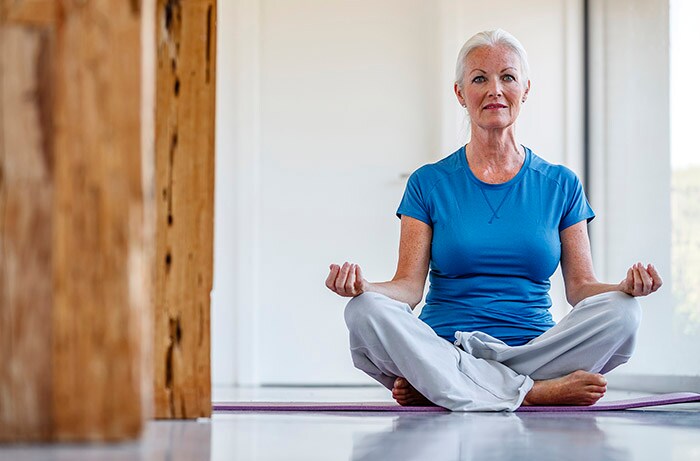Exploring the correlation between sleep and exercise
Throughout this series, Philips has explored the importance of sleep for well-being, and the ways in which sleep affects and is affected by different aspects of health. So far, we’ve explored the connection between sleep and stress, immune health, and even productivity. Interestingly, each of those can be directly affected not only by sleep, but by exercise as well. But how do sleep and exercise relate to and affect one another? Exercise is a facet of health that has a profound impact on a person’s sleeping patterns and, thus, their overall health. Conversely, sleep affects a person’s physical performance both the next day and in the long run, and can lead to – or detract from – their ability to obtain the significant benefits that physical activity provides. The two are inarguably linked and incredibly important – as Dr. Teofilo Lee-Chiong, Chief Medical Liaison at Philips Sleep and Respiratory Care, says, “maintaining a lifestyle that incorporates sufficient sleep and regular physical activity is essential in promoting physical health and emotional well-being.” Uncertain times have forced numerous aspects of daily life off-kilter, and for many, that includes the ability to exercise or sustain previously formed habits around daily physical activity. These days, with limited access to gyms, new protocols for exercising in public spaces, and other hindrances of this nature, it’s likely that for many, physical activity has been interrupted, if not completely stalled. That’s why it’s important now, perhaps more than ever before, to examine the critical link between sleep and exercise to promoting healthy living, as well as consider best practices for successfully weaving both into daily routines.
The effects of exercise on sleep
According to a study conducted by the National Sleep Foundation that sampled more than 2,600 men and women ages 18-85, people sleep significantly better and feel more alert during the day if they exercise for at least 150 minutes per week. The study stated that this amount of exercise provided a 65% improvement in sleep quality [1]. Dr. Lee explains, “regular exercise improves both subjective and objective measures of sleep, including sleep quality, sleep duration and sleep continuity in healthy adults.” Furthermore, “exercise has been shown to alleviate sleep disturbance related to insomnia and obstructive sleep apnea.” The positive effects of exercise on sleep don’t stop there. Exercise can improve weight and body composition, cardiorespiratory fitness, depressive symptoms and autonomic nervous system functioning. The negative effects of insufficient exercise on sleep can have severe health implications. A decreased quality of sleep due to lack of physical activity can influence a person’s health via its effect on weight and deconditioning. People who are overweight or obese have been shown to have worse sleep quality than those with normal body weight, according to Dr. Lee.

The effects of sleep on exercise
Just as exercise affects sleep, sleep also affects exercise, and inadequate sleep can both prevent a person from reaping the important benefits that physical activity provides, as well as impair a person’s aptitude, leading to potential injury. According to Philips annual global sleep survey, 87% of people agree sleep is an important contributor to their physical well-being. Dr. Lee reminds us that “a down-spiraling trend of poor sleep and no exercise may begin with a lack of sleep, which could lead to daytime fatigue that, in turn, deters physical activity, resulting, over time, to physical, metabolic and psychological changes further affecting sleep.” Lack of sleep can also impact one’s ability to perform physical activity by way of decreased agility or physical condition, which can be dangerous. Someone who has not had a good night’s rest is more likely to have “impaired vigilance, metabolism, mood, energy levels, immune function and pain perception,” says Dr. Lee. Furthermore, he explains that chronic sleep restriction is associated with changes in body composition, which may negatively affect physical performance via obesity, increased risk of hypertension, cardiovascular disease and depression. Lastly, sleep is important for memory encoding and consolidation, which is used in certain highly skilled exercises or athletic sports. According to the global sleep survey, 61% of adults around the world believe that their memory is worse when they have not slept well. Insufficient sleep could negatively affect the performance of an athlete whose sport incorporates or heavily relies on memory.
Timing matters
When thinking about how to benefit from both regular exercise and good sleep, factoring in the appropriate amount of time for both into a daily routine – and considering the best time of day to be active – is crucial for optimal health. Dr. Lee provides some considerations on when and how to incorporate exercise into your schedule: Routine is important in many aspects of life. Going to bed and waking up at the same, or similar, times each morning can help to ensure more effective sleep. And while exercising at the same time each day may not specifically lead to improved output, it could help to establish habit and encourage physical commitment. One way to do that (for the habitually uninclined) is to change the way to start the day. With advanced environmental data tracking, choice of sunset and sunrise simulations, personalized settings for light and sound and a light-guided wind-down function, Philips SmartSleep Connected Sleep and Wake-up Light can help consumers fall asleep relaxed and wake up feeling refreshed and energized. It’s important to think about the ways in which simple daily habits and routines can impact health – sleep and exercise are two key factors that, when integrated appropriately into daily life, can have a significant influence in maintaining an overall healthy lifestyle. There’s no better time than now to build physical activity into weekly schedules, to obtain both the physical and mental benefits of exercise as well as ensure restful sleep. [1] https://www.sleepfoundation.org/articles/study-physical-activity-impacts-overall-quality-sleep
Share on social media
Topics
Contact

Meredith Amoroso
Philips Global Press Office Tel: +1 724-584-8991
You are about to visit a Philips global content page
Continue
